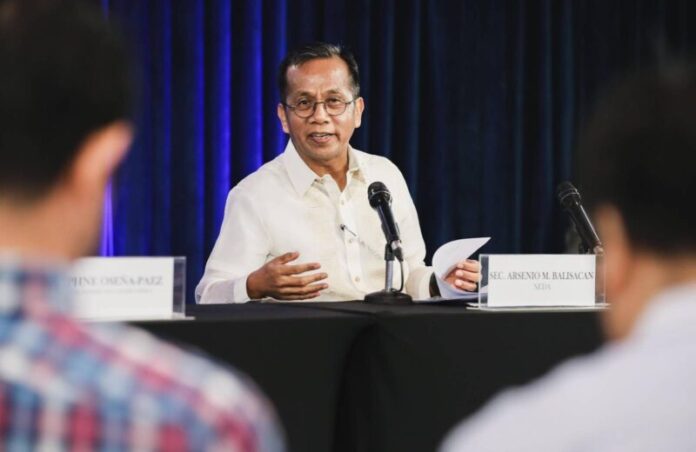
-
The NEDA Board, chaired by President Ferdinand Marcos Jr., approved a new list of 194 infrastructure flagship projects that will cost a total of about P9 trillion
-
The majority of these projects are in physical connectivity and water resources, and include projects in digital connectivity, health, power and energy, agriculture, and other infrastructure
-
45 the projects are seen to be financed through partnerships with the private sector
-
The NEDA Board also approved amendments to the 2013 NEDA joint venture guidelines with the aim of enhancing competition for joint-venture projects
The National Economic and Development Authority (NEDA) Board has approved a new list of 194 infrastructure flagship projects worth a total of about P9 trillion.
In its fourth meeting on March 8, the NEDA Board also approved amendments to the 2013 NEDA joint venture guidelines, Socioeconomic Planning Secretary Arsenio Balisacan said in a statement.
The NEDA Board is chaired by President Ferdinand Marcos Jr.
Balisacan said the majority of the infrastructure flagship projects are in physical connectivity and water resources, which include irrigation, water supply, and flood management projects. The list also includes projects in digital connectivity, health, power and energy, agriculture, and other infrastructure.
Some of the projects on the new list are:
- Panay Railway Project
- Mindanao Railway Project III
- North Long-Haul Railway
- San Mateo Railway
- University of the Philippines-Philippine General Hospital Diliman Project
- Ninoy Aquino International Airport Rehabilitation Project
- Ilocos Sur Transbasin Project
- Metro Cebu Expressway
Balisacan said the projects are aligned with priorities under the current administration’s 8-point socioeconomic agenda and in the Philippine Development Plan 2023-2028.
He said these “high-impact and urgently needed infrastructure projects aim to showcase the government’s Build-Better-More program.”
The projects are also seen to address the binding constraints to business investment and expansion to “create more, high-quality, and resilient jobs that will allow us to meet our poverty-reduction goals for the medium term.”
The infrastructure flagship projects will be prioritized under the government’s annual budget preparation and will enjoy the benefits of expedited issuance of applicable permits and licenses consistent with current legal frameworks.
The projects will adopt an optimal mix of financing from various development partners through official development assistance; the national government through general appropriation; and the private sector, particularly public-private partnerships (PPP).
To hasten the rollout of the projects, Balisacan said the administration is strongly promoting the utilization of PPPs, one of the cross-cutting strategies identified in the PDP.
Forty-five of the flagship projects are seen to be financed through partnerships with the private sector.
Balisacan said the government will harness the financial and technical resources of the private sector, which allows the public sector to allocate its funds for greater investments in human capital development, especially to address the scarring in health and education due to the pandemic and provide targeted assistance that protects vulnerable sectors from economic shocks.
To ensure the quality and timeliness of project execution, the NEDA Board designated NEDA as the lead agency that will monitor the implementation of the infrastructure flagship projects as part of its program-monitoring function pursuant to Executive Order No. 230 (Reorganization of NEDA).
The NEDA Board also approved the proposed amendments to the 2013 NEDA joint venture guidelines, which provide the revised guidelines and procedures for entering into JV agreements between government and private entities.
NEDA will process the issuance of the revised joint-venture guidelines in accordance with Section 8 of Executive Order 423, series of 2005, which prescribes the rules and regulations on the review and approval of government contracts.
Balisacan said the amendments aim to enhance competition for projects under joint ventures, ensure better performance of private-sector participants, and improve checks and balances to ensure that the project is technically and financially sound.
The amendments will also ensure that the guidelines are aligned with the provisions of the recently amended Build-Operate-Transfer (BOT) Law implementing rules and regulations and the proposed amendments to the BOT Law pending in Congress. Both measures are expected to be passed this year.




